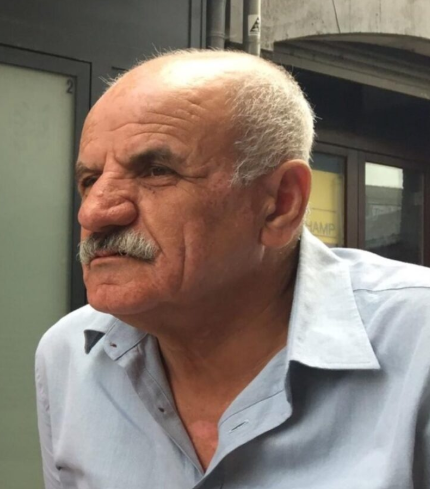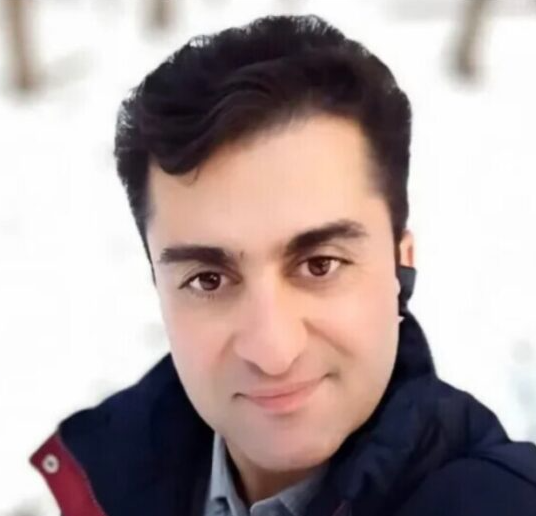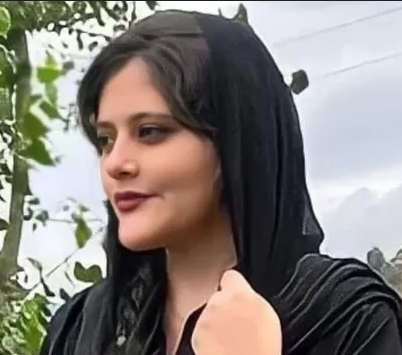Iranian government introduced a mandatory dress code for women after the Iranian Revolution of 1979. On 7 March, less than a month after the revolution, then recently named Supreme Leader Ruhollah Khomeini decreed the hijab (Islamic headscarf) to be mandatory for all women in workplaces. He further decreed that women would no longer be allowed to enter any government office without the hijab, as they would be “naked” without it.
Since then, violence and harassment against women not wearing the hijab in accordance with Iranian government standards, whether by law enforcement personnel or pro-government vigilantes, has been reported. From 1980, women could not enter government or public buildings or attend their workplaces without a hijab. In 1983, mandatory hijab in public was introduced in the penal code, stating that “women who appear in public without religious hijab will be sentenced to whipping up to 74 lashes“. In practice, however, a number of women, such as Saba Kord Afshari and Yasaman Aryani, were sentenced only to heavy prison terms.
Mahsa was born on 21 September 1999 to a Kurdish family in Saqqez, Kurdistan Province, in northwestern Iran. While Mahsa was her Persian given name, her Kurdish name was Jîna, and this was the name her family used.
For Masha, as can be seen from her photos and videos on social media, only the mandatory rules made her wear hijab half-heartedly. She did not observe the hijab in various events such as weddings and wore traditional Kurdish clothes that do not have a hijab. She also partially observed hijab when traveling to tourist areas. This issue caused the moral security officers to arrest her and beat her. This also caused people, especially women and girls, to join her and put away their hijab.
Masha had come to Tehran to visit her brother and on 13 September 2022 she was arrested by the Guidance Patrol at the entry of the Shahid Haghani Expressway in Tehran while in the company of her family. She was then transferred to the custody of Moral Security. Her brother, who was with her when she was arrested, was told she would be taken to the detention center to undergo a “briefing class” and released an hour later.
Masha was beaten by police shortly after her arrest, while in a police van. After she arrived at the police station, she began to lose vision and fainted. Two hours after her arrest, She was taken to Kasra Hospital.It took 30 minutes for the ambulance to arrive, and an hour and a half for her to get to Kasra hospital. Iranian police later denied beating Masha, claiming she had “suffered a sudden heart failure“. Police later stated to her brother that his sister had a heart attack and a brain seizure at the police station to which she had been taken.
For two days, Masha was in a coma in Kasra Hospital in Tehran. On 16 September, journalist Niloofar Hamedi (later arrested) broke the story of her coma, posting to Twitter a photo of Masha‘s father and grandmother crying and embracing in the hospital hallway. She died in the intensive care unit later that day. The clinic where she was treated released a statement on Instagram saying that she had already been brain dead when she had been admitted around 13 September. By 19 September, the post had been deleted.
On 17 September, the police chief of Tehran stated that the grounds of Masha‘s arrest were wearing her headscarf improperly and for wearing tight pants.
Published hospital pictures show Mahsa Amini bleeding from the ear and with bruises under her eyes. In an 18 September letter, Doctor Hossein Karampour (the top medical official in Hormozgan province), pointed out that such symptoms “do not match the reasons given by some authorities who declared the cause to be a heart attack… (they are instead consistent with) a head injury and the resulting bleeding.” This was also confirmed by alleged medical scans of her skull, leaked by hacktivists, showing bone fracture, hemorrhage, and brain edema.
By 19 September, police had released CCTV footage showing a woman, who they identified as Masha, talking with an official. In the footage, the official grabs her clothing, and Masha holds her head with her hands and collapses. Her father dismissed the footage as an “edited version” of events. Her brother noticed bruises on her head and legs. The women who were detained with her said she had been severely beaten for resisting the insults and curses of the arresting officers.
According to Iran International, the Iranian government was forging fake medical records for Masha, showing that she had a history of heart disease. On 20 September, Massoud Shirvani, a neurosurgeon, stated on state-owned television that she had a brain tumor that was extracted at the age of eight.
By 21 September, the hospital had released preliminary CT scans. Government supporters stated the CT scans showed psychological stress caused by a previous brain operation; critics stated the scans showed physical beating and trauma. The Iranian government stated Masha had a brain operation at the age of five.
Regarding various government claims, Mahsa‘s father Amjad Amini told the BBC around 22 September that “they are lying… She never had any medical conditions, she never had surgery.” (Two classmates, interviewed by the BBC, said that they weren’t aware of Mahsa ever being in hospital.) Amjad said he had not been allowed to view his daughter‘s autopsy report. He denied that Mahsa had been in bad health. “I asked them to show me the body-cameras of the security officers, they told me the cameras were out of battery.” Iranian authorities had charged that Mahsa was wearing immodest clothes when arrested; Amjad rejected this claim, stating that she always wore a long overcoat. Amjad said he was repeatedly prevented by medical staff from seeing his daughter‘s body after her death: “I wanted to see my daughter, but they wouldn’t let me in”, and charged that when he asked to see the autopsy report, he was told by the doctor: “I will write whatever I want and it has nothing to do with you.” Amjad saw the body after it had been wrapped for the funeral, and noticed bruises on her feet, but could not see the rest of the body due to the wrapping. Iranian authorities denied any head injuries or internal injuries.
According to Iran International, on 29 September an audio file was released by a former commander of Iran’s Revolutionary Guards Corps, which reported unnamed “reliable sources” saying that the reason for Mahsa‘s death was an injury to her skull and that the injury was the result of a severe beating.
The Amini family’s lawyer, Saleh Nikbakht, told the Etemad online news website that “respectable doctors” believe Mahsa was hit while in custody. Nikbakht also said the family wants a fact-finding committee to probe her death, and that police footage filmed after her arrest should be handed over.
By 2 October, Masha‘s family had acknowledged that she had an operation for a minor neurological condition (possibly a brain tumor) at the age of eight, but said it had been under control through levothyroxine (a medication to treat hypothyroidism), and that her doctors had recently given her the all-clear. Citing medical specialists they had consulted, the family stated the condition was unrelated to Masha‘s death.
A 7 October coroner’s report stated that her death was “not caused by blows to the head and limbs” and instead linked her death to pre-existing medical conditions, ruling that she had died from multiple organ failure caused by cerebral hypoxia. The report stated Masha had had a brain tumor operation when she was eight. The report did not say whether she had suffered any injuries.
In a 13 October letter, over 800 members of Iran’s Medical Council accused the head of Iran’s Medical Council of assisting in a government cover-up of the cause of Mahsa‘s death.
In an 8 December article, Der Spiegel confirmed with Masha‘s grandfather that she had a brain tumor removed when she was an elementary school student. Her grandfather emphasized that the tumor was benign, and stated that she never had any health problems since the operation. Der Spiegel also relayed a report from one her two cousins present at Masha‘s arrest, stating that she had been forced into the arrest vehicle by the morality police.



